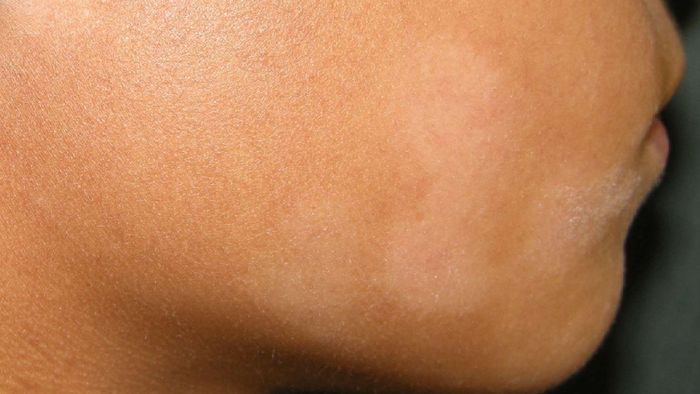Natural Remedies for White Patches on the Face: Home Treatments and Tips
White patches on the face, known medically as vitiligo or leukoderma, can be distressing and affect one's self-esteem. These patches occur due to the loss of melanin, the pigment responsible for skin color. While medical treatments are available, many prefer natural remedies due to their gentle and holistic approach.

- Jul 21, 2024,
- Updated Jul 21, 2024, 11:53 PM IST
White patches on the face, known medically as vitiligo or leukoderma, can be distressing and affect one's self-esteem. These patches occur due to the loss of melanin, the pigment responsible for skin color. While medical treatments are available, many prefer natural remedies due to their gentle and holistic approach.
Understanding White Patches
White patches on the face can arise from various conditions, including vitiligo, fungal infections like tinea versicolor, or skin conditions such as eczema or psoriasis. Identifying the underlying cause is crucial for effective treatment. If the white patches persist or worsen, it is advisable to seek medical advice for an accurate diagnosis.
Home Remedies for White Patches
Aloe Vera
Aloe vera is renowned for its skin-healing properties. Its anti-inflammatory and soothing effects make it an excellent remedy for white patches.
How to Use: Extract fresh aloe vera gel from the leaf and apply it directly to the affected areas. Leave it on for 20-30 minutes before rinsing off with lukewarm water. Repeat this twice daily for best results.
Turmeric and Mustard Oil
Turmeric has antibacterial and anti-inflammatory properties, while mustard oil helps improve blood circulation and pigmentation.
How to Use: Mix 1 teaspoon of turmeric powder with 2 teaspoons of mustard oil to form a paste. Apply this paste to the white patches and leave it on for 15-20 minutes before washing off. Use this remedy twice daily for several months.
Neem
Neem, known for its antifungal and antibacterial properties, helps treat skin infections and promotes healthy skin.
How to Use: Make a paste by grinding neem leaves with a little water. Apply the paste to the affected areas and leave it on for 15-20 minutes before rinsing off. Alternatively, drink neem juice daily to boost immunity and skin health.
Ginger
Ginger is believed to increase blood circulation and stimulate melanin production.
How to Use: Grate a small piece of ginger and apply the juice to the white patches. Leave it on for 15-20 minutes before washing off. Drinking ginger tea daily can also be beneficial.
Coconut Oil
Coconut oil has antimicrobial properties and helps in nourishing and moisturizing the skin.
How to Use: Apply virgin coconut oil to the white patches several times a day. Regular use can help improve skin pigmentation and texture.
Apple Cider Vinegar
Apple cider vinegar helps in balancing the skin's pH and has antifungal properties.
How to Use: Dilute apple cider vinegar with an equal amount of water and apply it to the white patches using a cotton ball. Leave it on for 15-20 minutes before rinsing off. Use this remedy twice daily.
Honey and Sandalwood
Honey is a natural moisturizer, and sandalwood has skin-soothing properties.
How to Use: Mix 1 tablespoon of honey with 1 tablespoon of sandalwood powder to form a paste. Apply this paste to the white patches and leave it on for 20-30 minutes before washing off. Use this remedy daily.
Basil Leaves
Basil leaves have antimicrobial and skin-purifying properties.
How to Use: Crush fresh basil leaves and apply the juice to the white patches. Alternatively, make a paste of basil leaves and apply it to the affected areas. Leave it on for 15-20 minutes before rinsing off.
Diet and Lifestyle Tips
In addition to topical treatments, maintaining a healthy diet and lifestyle can support skin health and overall well-being.
Balanced Diet: Include foods rich in vitamins and minerals, such as fruits, vegetables, whole grains, and lean proteins. Vitamins B12, C, D, and E, along with minerals like copper and zinc, are particularly beneficial for skin health.
Hydration: Drink plenty of water to keep the skin hydrated and flush out toxins.
Sun Protection: Protect the skin from excessive sun exposure by using sunscreen and wearing protective clothing. Sunburn can worsen white patches.
Stress Management: Stress can exacerbate skin conditions. Practice stress-reducing activities like yoga, meditation, and regular exercise.
While home remedies can be effective in treating white patches on the face, they may take time and consistency to show results. It is essential to be patient and persistent with these natural treatments. If the condition does not improve or worsens, consulting a dermatologist is crucial for proper diagnosis and treatment. Combining home remedies with a healthy diet and lifestyle can promote overall skin health and help manage white patches effectively.